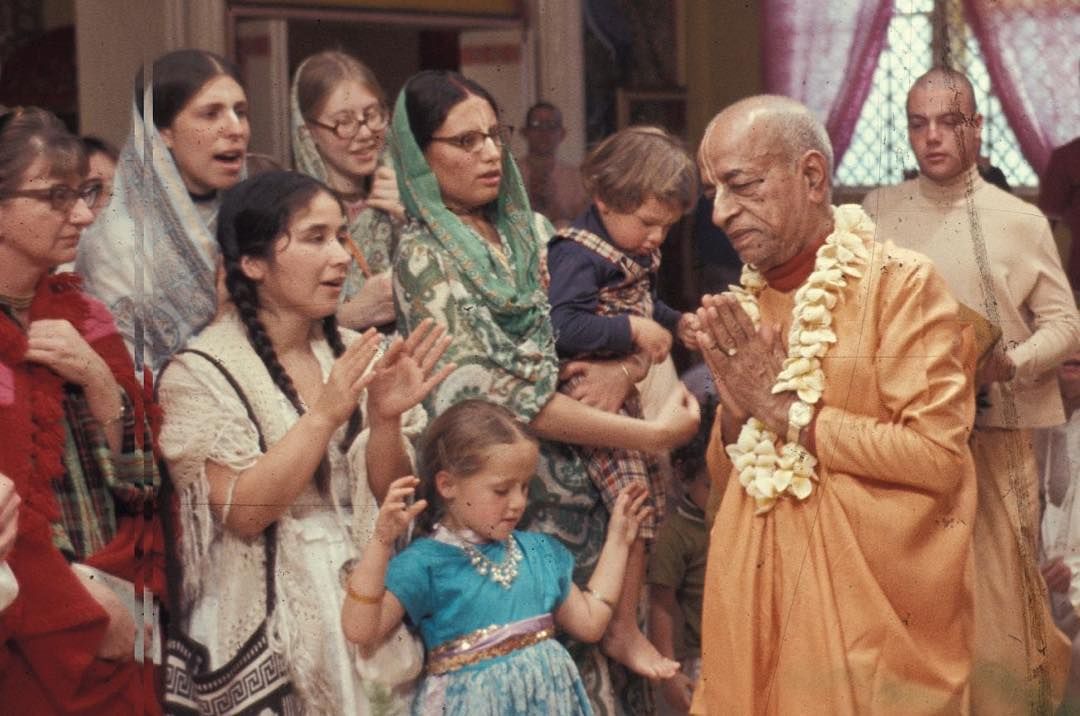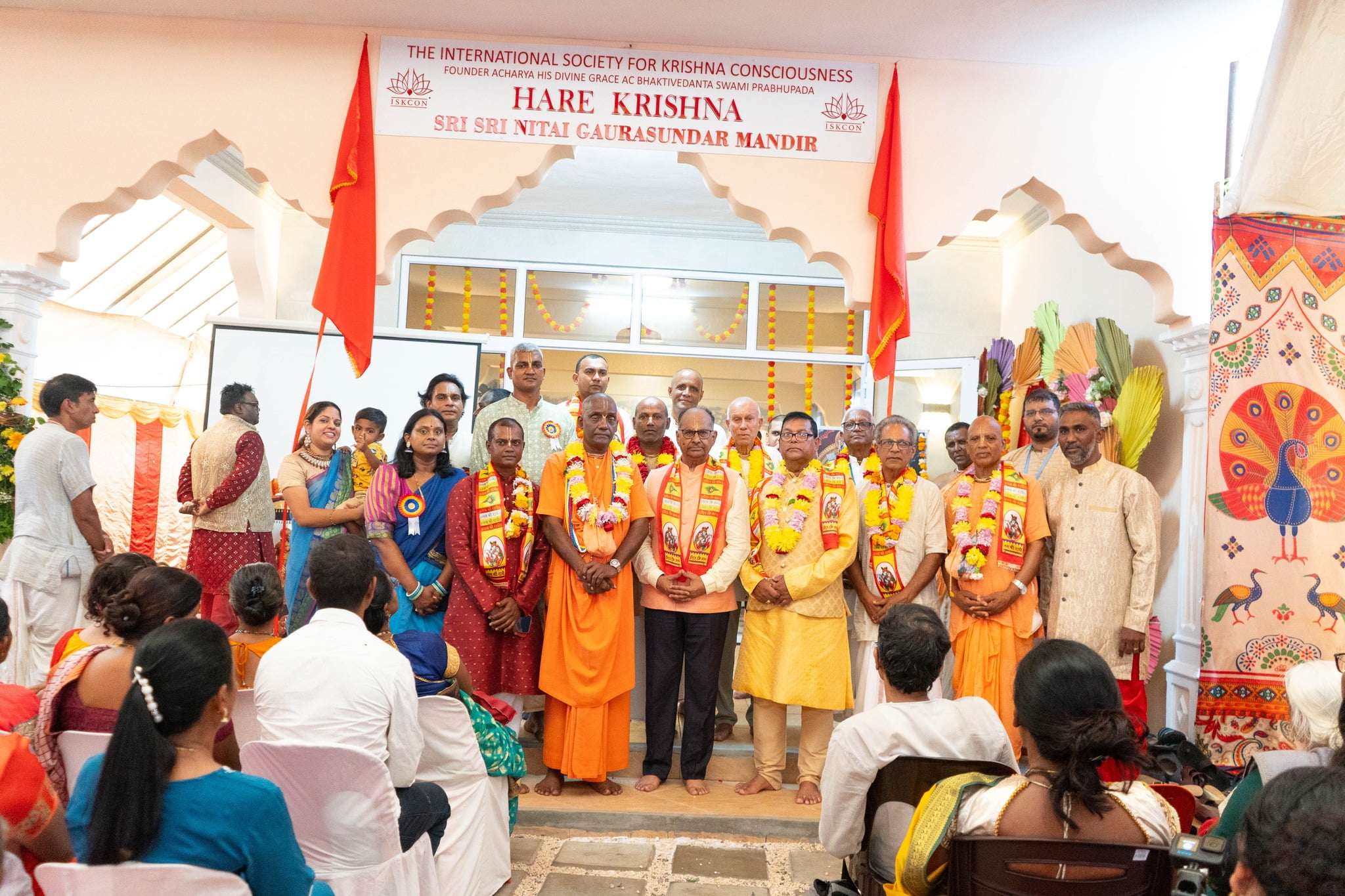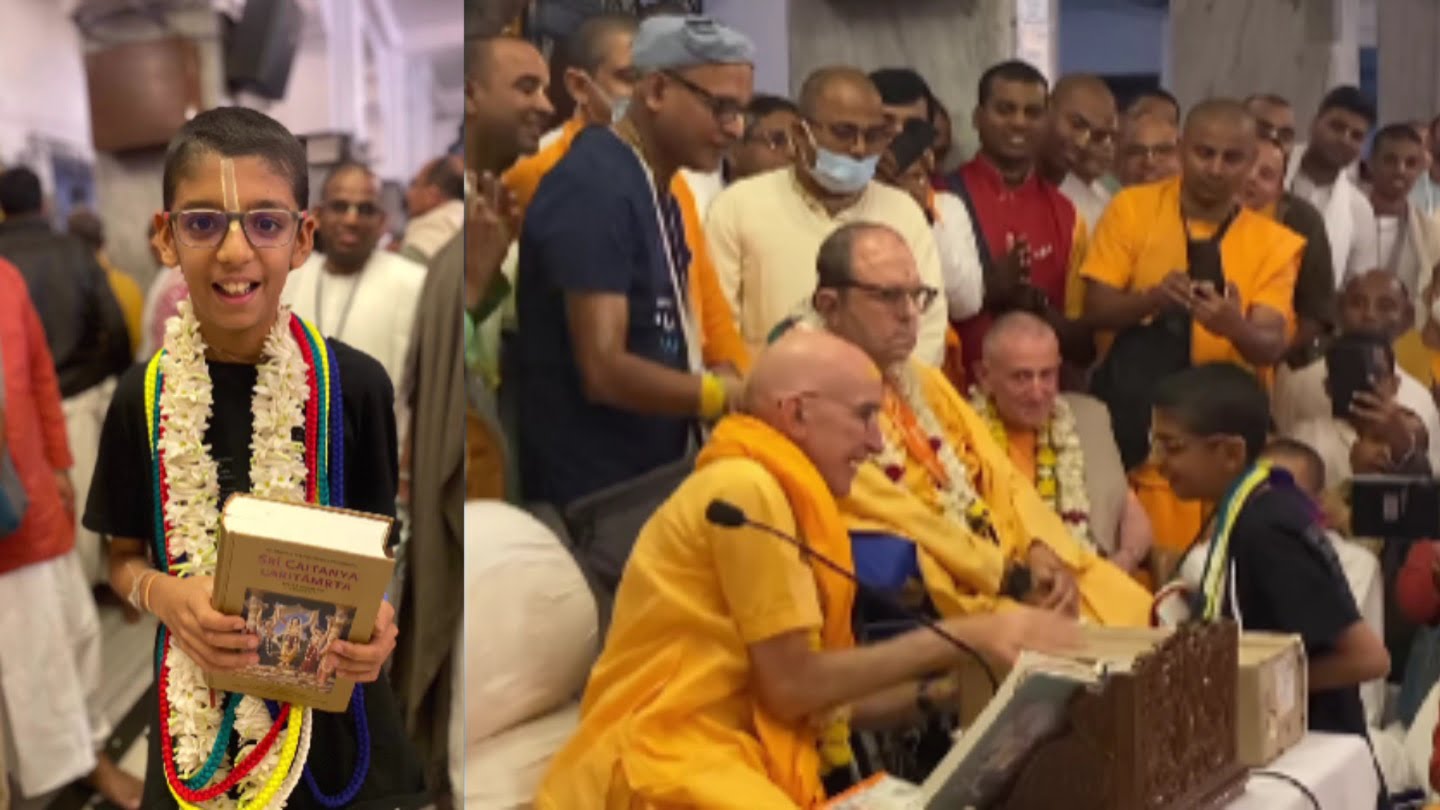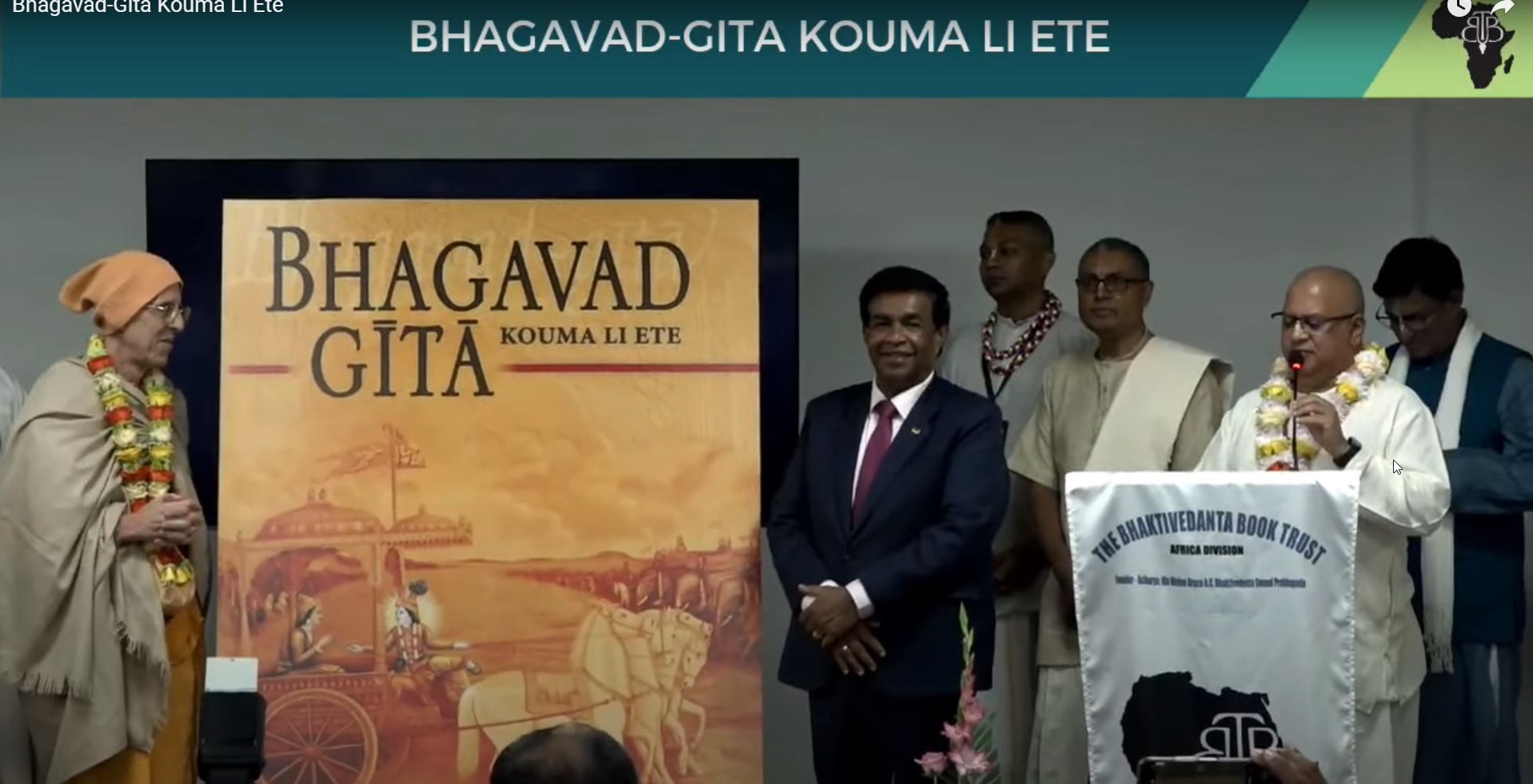The Notion of ‘Free Speech’ in ISKCON
By Kripamoya Dasa | Mar 07, 2009

Does anyone remember the Telex machine?
I guess even the question reveals my age. It’s like asking does anyone remember slide rulers or carbon paper. They are devices of the past. Like Linotype machines, spirit duplicators and pink negative correction fluid, they have all been washed away by the digital tidal wave.
For any English football fans of a certain age, the Telex machine was what brought you the Saturday afternoon football scores. One camera was fixed in a close-up shot of the tele-printer and you could read the scores from across the country as they came in.
The Hare Krishna movement in the 1970s was rapidly growing, the young members were stationed in cities at great distances from each other, and the communication was slow. Of course, we didn’t know it was ’slow’ back then because everyone else communicated at a certain speed. Planning an ‘international telephone call’ was still something of a rare event. The gentle art of writing air mail letters and having to wait sometimes weeks for a reply was something we were used to.
Creating publications for our preaching work back then was a little more tactile. ‘Cut and Paste’ meant that you picked up a pair of metal scissors, cut out a piece of real paper, then pasted it down onto your artwork with real glue. ‘Search Image’ meant that you had a rummage in a big filing cabinet for any photographs you had. These then had to be shot into bromides, the negatives first being spotted with that pink stuff and a little brush.
So its no wonder that followers of Srila Prabhupada, who had already taught them that any device can be used gainfully in Krishna’s service, were always on the lookout for new technology that could help them in publishing and in communications generally.
Devotees wanted to keep in touch with what their spiritual master was saying and doing as he travelled the world. Often he would say something that would take the movement in a slightly new direction in its organisation or its preaching – but he would say it at another temple, in another country. So ISKCON members – who had to wait for weeks for taped cassettes of classes to be sent to them (if at all) wanted to hear about these developments quicker.
They also wanted to be able to communicate between each other – temple to temple – so that successes could be shared and advice passed on. For these reasons they asked Srila Prabhupada if they could install the recently-available Telex machines inside the temples. Basically electric typewriters connected through a radio frequency, the Telex machine allowed messages to be sent almost instantaneously.
Srila Prabhupada was not enthusiastic, and even said that the devices would increase the possibility of devotees engaging in prajalpa, a Sanskrit word meaning ‘useless,idle talk.’ Even at the risk of his temples being under-informed, Srila Prabhupada considered that Telex would not help his followers in their spiritual lives. It seems that the risk of prajalpa was an even greater risk than his disciples having less information.
Useless conversation – or writing – means that type of communication that doesn’t help us to remember the goal of life. It can be simply gramya-katha or ‘village gossip,’ talks of the mundane, the ever-changing political, or persons who are famous for a few brief days.
And it can be worse. Everything we do in this world is influenced, to a greater or lesser extent, by the three gunas, the modes of nature. Sattva conditions us to seek happiness within this world, Rajas to engage in strenuous activity for creating something or tearing something down; and Tamas pushes us into unbeneficial acts leading to indolence, sleep, and madness. These three gunas also affect the words we speak and come out in our conversation. Indeed, the Mahabharata states that: ‘whatever is on a man’s mind will come into the world through his speech.’
It is further stated that: “A man’s words are like an arrow shot from a bow; once in the air it is impossible to return them.”
When we take initiation in Krishna consciousness we promise to follow ten principles of action that will allow our chanting of the great Maha-Mantra to have full effect on our hearts. The very first vow we take is to avoid sadhu-ninda, the offense of ‘blaspheming those devotees who have dedicated their lives to the propagation of the Holy Name of the Lord.’
The word blasphemy – a word normally used only in reference to speech directed against God – is used because the sadhus are very dear to God. To speak ill of a genuine sadhu is to automatically place oneself in a precarious spiritual position. A mental, verbal, or physical offense against such persons can weaken one’s spiritual life to such a point where one can even abandon the practise of chanting entirely.
The difficulty is that this sort of speech uttered in a moment of anger – often the result of perceived threats to ones plans, or a mistaken challenge to the ego, is very easily done. And because it is easily done there are repeated and strong warnings about it within Vaishnava literature. Entire episodes within the Srimad Bhagavatam highlight the danger of such careless and uncontrolled speech.
Its even more difficult in a movement where many members have already, or are seriously trying, to give up hedonistic or self-centred actions. Committment to such a life of voluntary restraint doesn’t always mean that every day will be successful. They can, on occasion, express their pent-up feelings in a burst of writing. In former years, they might have written an air-mail letter, thought about its contents carefully for a few days, then sent it.
Now we are used to ‘instant’ communication. We become angry and write down our feelings, and send them off instantaneously. Sadly, this speed of communication does nothing for introspective reflection on the effects of ones communication (which takes time) proper understanding of the other person’s speech or actions (which takes time) or the steady development of a relationship (which takes time).
A forest can take years to grow, but can be destroyed in a few hours by just one flame. Similarly, our spiritual life takes years to slowly grow and bear fruit, yet it can be destroyed within a short time by sadhu ninda.
Again, in this slightly longer post I am not arguing for any form of institutional censorship. The internet has no such restriction anyway. But personal caution is required. Checking facts is required. And certainly expressing oneself with carefully chosen words which discuss issues not persons – that is required. That will help to create dialogue which serves to help mutual understanding and that will better serve the purpose. For all of us to grow individually and collectively there is much that has to be discussed – and much of that will be in the form of vigorous debate and even passionate argument.
But there is a fine line between heated discussion of policy and insult to the person. And there is a great difference between speech that is persuasive and convincing, and speech which is merely frustration transformed into speech or written word that is intended to abuse, demean, and insult.
The concepts of ‘Free Speech’ like ‘Democracy’ are ideals which can only be properly upheld by persons of essentially good character. Otherwise they are noble intentions which become destroyed by the same three gunas they seek to transcend. And Free Speech – a good, but man-made principle – is never a substitute for the lasting freedom to be gained through practising the eternal principles of true spiritual life.












